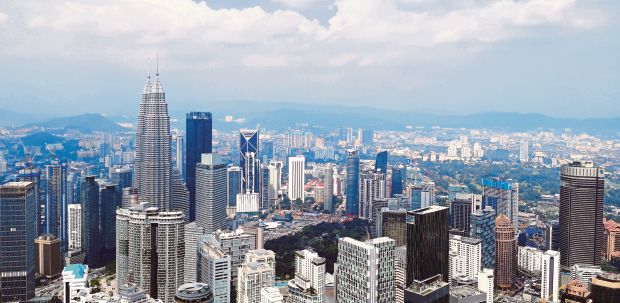For almost two years now, we have experienced a never-before-seen calamity. The damage caused by Covid-19 may have been from losing a loved one, our jobs, our businesses or a depleting bank account.
With multiple lockdowns since last year, coupled with stricter restrictions, many wonder how they can meet their loan commitments.
Help did arrive, in the form of Bank Negara's Loan Repayment Assistance (LRA) programme under Pemulih.
It came with new features, such as an opt-in model, and enabling people and businesses to apply without documentation (proof of reduction or loss of income, or background checks).
In addition, those approved could choose between a three-month loan repayment moratorium or a 50 per cent reduction for six months.
By the end of July, 25.4 per cent of household borrowers had taken up the LRA, a sharp increase from the eight per cent in December last year.
For businesses, one in five SME borrowers sought repayment assistance.
There is concern that many who can afford payments may opt for the programme and spend their extra money recklessly, despite the threat of higher payments due to accrued interest.
It's wise to subscribe only because of serious cash flow problems, such as loss of employment or loss of income due to lockdowns.
LRA, if deployed on its own, is just delaying the inevitable as one ends up paying more in the long run. This will only jeopardise borrowers' cash flow in case of another unforeseen event.
Ultimately, people and businesses need more than a moratorium and repayment assistance. They need a sound social protection system.
There are three dimensions to social protection the government should consider.
FIRST, is via social assistance by introducing tax-financed benefits (cash or in kind) to families that are strained by caring for their children, parents and family members with special needs.
This can be in the form of child, old-age and people with disability allowances.
To finance this, the government can look at consolidating social assistance programmes that, in the opinion of many, are overlapping and riddled with inclusion and exclusion errors.
SECOND, is to improve coverage of social insurance, particularly for the Employees Provident Fund and Social Security Organisation contributions, as many have shifted to gig-economy type of work.
Thus, close collaboration between the Employers Provident Fund, Socso and platform providers should be initiated.
LASTLY, the government must aid recovery through labour market interventions to address unemployment and underemployment trends that have developed since the crisis. They can be in the form of hiring and wage subsidies for one or two years rather than just a couple of months.
These components describe a social protection framework that, if deployed in tandem with LRA, will act as automatic stabilisers not only during the Covid-19 crisis, but also a buffer for future crises.
We should, therefore, build on the impetus of the 12th Malaysia Plan (12MP) to provide better social protection for Malaysians.
The 12MP was started on the right footing by merging the Malaysia Social Protection Council and Jawatankuasa Khas Kabinet Menangani Kemiskinan to ensure better coordination in the formulation of policies and to address all three elements of social protection.
In addition, those benefiting from LRA may also have bad debt management and financial planning issues. Therefore, financial literacy education is vital.
On this note, I commend Bank Negara's foresight to allow individual and SME borrowers who have missed their repayments by more than 90 days to reach out to the Credit Counselling and Debt Management Agency for a customised repayment programme, and free financial advice.
It's a testament to the saying that to solve a problem, we must first recognise that it exists.
Covid-19 ravages all, threatening lives and livelihoods across borders at breakneck speed. Is there a guarantee we will not experience a similar disaster in the future?
Policymakers should see this as an opportunity to safeguard the wellbeing of Malaysians for many years to come.
The writer is president of the Malaysian Economic Association and director of the Social Wellbeing Research Centre, Universiti Malaya
The views expressed in this article are the author's own and do not necessarily reflect those of the New Straits Times






